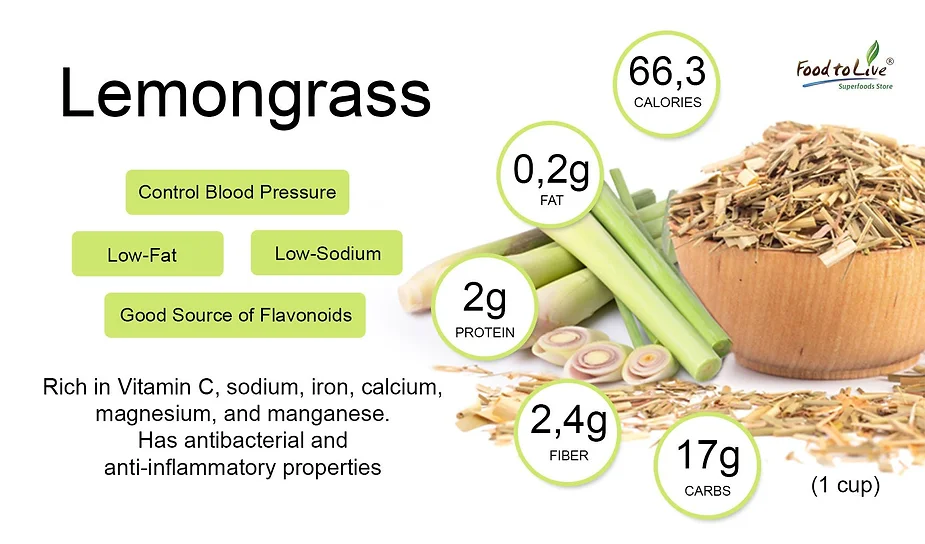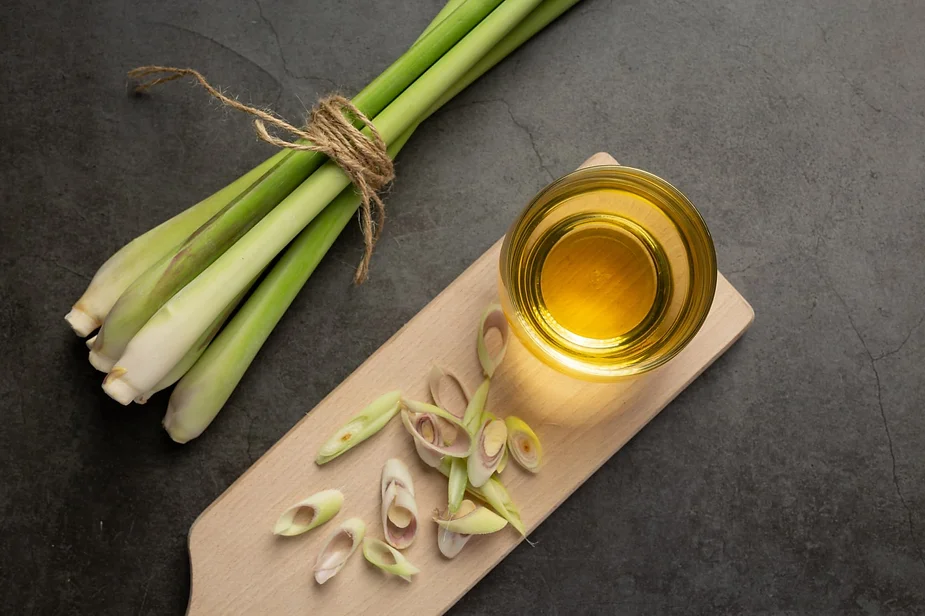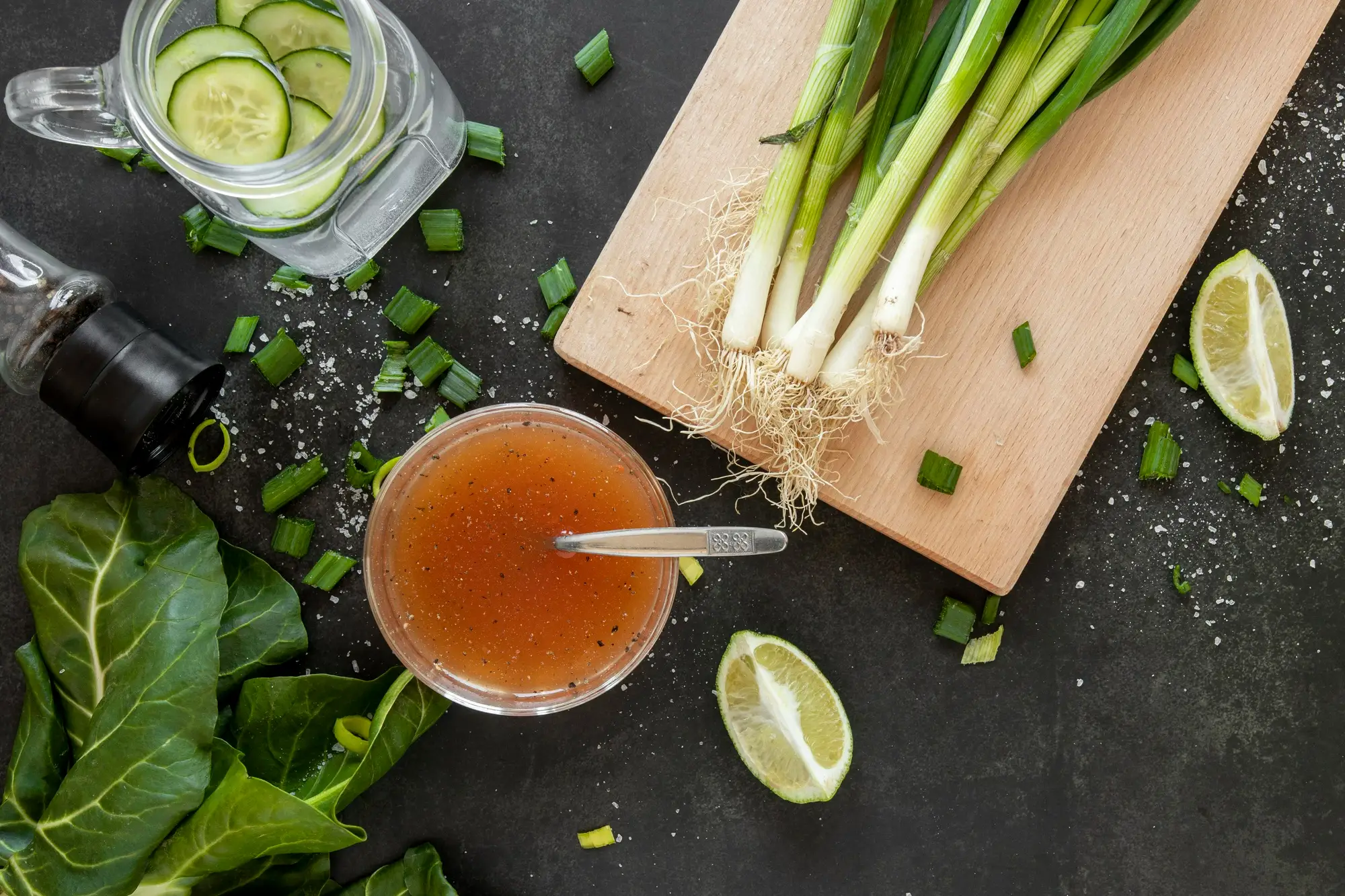Looking for a natural remedy to soothe your stomach, elevate your mood, or simply add a touch of zen to your day? Taste your buds the lemongrass tea, a fragrant herbal infusion gaining immense popularity worldwide. This vibrant beverage boasts not only a delightful citrusy aroma but also a treasure trove of potential health benefits.
Lemongrass tea, brewed from the leaves of the Cymbopogon citratus plant, has been a staple in traditional Asian medicine for centuries. Today, its unique flavor and wellness properties are captivating tea enthusiasts globally. Whether you’re seeking a relaxing after-dinner drink or a natural pick-me-up in the afternoon, lemongrass tea benefits are delightful and provide a potential health-supportive solution.
Lemongrass Tea: Discover Its Unique Sensory Experience
Visual Appeal
Lemongrass tea begins with the visually striking lemongrass stalks, which are long, slender, and vibrant green. As they mature, the stalks develop a subtle yellowish tint, signaling their readiness for brewing.
Aromatic Essence
The true allure of lemongrass tea lies in its distinctive aroma. The essential oils, particularly citral, produce a refreshing blend of citrus and a hint of ginger, complemented by a touch of floral sweetness. This refreshing fragrance enhances the tea’s overall appeal and hints at its potential health benefits.
Flavor Profile
Lemongrass tea offers a crisp, citrusy flavor profile with a faint grassy undertone. Unlike many herbal teas, it provides a naturally sweet and refreshing taste, which can be enjoyed without any added sugars. This unique flavor makes it a perfect choice for those seeking a flavorful yet healthy tea option.
Lemongrass tea’s unique characteristics extend beyond its sensory appeal. This versatile herb has been used for centuries in Southeast Asian cuisine, adding a fragrant touch to curries, soups, and stir-fries.
How To Make Lemon Grass Tea
Here, we’ll explore some highly beneficial lemongrass tea recipe options for using both fresh and dried lemongrass, ensuring you can enjoy this delightful beverage any time.
Fresh Lemongrass Tea
- Look for firm, green stalks of lemongrass at your local grocery store. Avoid stalks that are dry or brown, as they might offer a weaker flavor.
- Wash the lemongrass stalk thoroughly. Using a sharp knife, remove the tough outer layers and the woody root end.
- This step is crucial for releasing the full flavor of lemongrass. Use the blunt end of a knife or a muddler to gently bruise the stalk along its length. Don’t pulverize it; aim for gentle cracks.
- In a saucepan, combine bruised lemongrass with water (generally 1 stalk to 4 cups of water). Bring to a simmer and let it steep for 10-15 minutes, depending on your desired strength.
- Strain into the mug and enjoy drinking the tasty lemongrass tea. You can add a touch of honey, ginger, or mint for a personalized flavor twist.
Dried Lemongrass Tea
Discover how to make lemongrass tea with this easy recipe, combining lemongrass stalks and hot water for a naturally soothing and flavorful drink.
- Dried lemongrass offers a readily available alternative to fresh stalks. Look for it in loose-leaf form or pre-packaged tea bags.
- Steep 1-2 teaspoons of dried lemongrass in hot water (around 180°F) for 5-10 minutes. The steeping time may vary depending on the brand and desired strength.
- Similar to fresh lemongrass tea, you can customize your dried lemongrass tea with additional ingredients like honey, ginger, or mint.
Beyond the Basics
- While this recipe provides a foundational method, feel free to explore! Try adding a sliver of fresh ginger or a few mint leaves during the steeping process for a more complex flavor profile.
- Lemongrass ginger tea is a soothing blend that combines the refreshing citrus notes of lemongrass with the warm, spicy kick of ginger, creating a perfect drink for relaxation and digestion.
- Both fresh and dried lemongrass can often be steeped for a second round. Taste the tea after the first steeping and decide if it needs additional strength.
- For a refreshing summer drink, brew your lemongrass tea as usual and then allow it to cool completely. Pour it over ice and enjoy!
Lemongrass Tea Benefits

Lemongrass plant tea isn’t just a delightful beverage; it’s a potential treasure trove of health benefits! While more research is ongoing to fully understand its properties, studies suggest lemongrass tea may offer a range of positive effects on your well-being. Let’s explore some of the most promising lemongrass tea benefits:
1-Digestive Relief
Traditionally, lemongrass tea has been used to soothe digestive ailments like indigestion, bloating, and stomach cramps. Studies suggest that certain compounds in lemongrass, such as citral, contribute to a calmer digestive system.
2-Anti-inflammatory Powerhouse
Inflammation is the body’s natural response to injury or infection. However, chronic inflammation can contribute to various health concerns. Lemongrass tea benefits from its antioxidants and potential anti-inflammatory compounds that might help reduce inflammation in the body.
3-Relaxation and Stress Reduction
The act of sipping a warm, fragrant cup of lemongrass tea can be a calming ritual in itself. Furthermore, some studies suggest that lemongrass may have properties that promote relaxation and ease anxiety.
4-Potential Blood Sugar Management
Early research indicates that lemongrass tea consumption might play a role in blood sugar management. The findings of this study have evaluated that using lemongrass extracts reduced blood glucose levels by 60.3%. This information is especially compelling for individuals dealing with diabetes or prediabetes. Nevertheless, additional research is necessary to validate these discoveries.
5-Immune System Support
Lemongrass boasts vitamin C and antioxidants, which are essential for a healthy immune system. While lemongrass tea isn’t a magic bullet for preventing illness, it might contribute to overall well-being and immune function. Sipping on the lemongrass ginger tea variant offers a host of health benefits, from boosting immunity to easing digestive discomfort.
6-Rich in Antioxidants
Lemongrass is loaded with antioxidants like chlorogenic acid, isoorientin, and swertiajaponin, which help combat free radicals in the body. These antioxidants protect cells from damage, reducing the risk of chronic diseases and promoting overall health.
7-Aids in Detoxification
Lemongrass acts as a natural diuretic, encouraging the elimination of toxins from the body. This detoxifying effect helps cleanse the liver, kidneys, and bladder, supporting overall organ function and health.
8-Promotes Healthy Skin
Thanks to its antiseptic and astringent properties, lemongrass benefits your skin health. It can help reduce acne, clear up oily skin, and even out skin tone, making it a popular ingredient in skincare routines.
Elevate your self-care routine with a DIY lemongrass steam facial. Simply brew a strong pot of lemongrass tea, let it cool slightly, and drape a towel over your head while inhaling the steam for 5-10 minutes. This can help open pores, promote relaxation, and leave your skin feeling refreshed.
Studies have also proven that the ethyl acetate (EtOAc) extract of lemongrass shows promise as a potential skincare cosmeceutical for treating Acne vulgaris.
9-Regulates Cholesterol Levels
Research indicates that lemongrass can help manage cholesterol levels by lowering LDL (bad cholesterol) and triglycerides. This makes it a heart-healthy addition to your diet, reducing the risk of cardiovascular diseases.
10-Supports Weight Loss
Lemongrass is low in calories and can be a great addition to a weight loss diet. Its ability to boost metabolism and aid digestion helps in burning calories more efficiently, supporting weight management goals.
11-Culinary Creations
Don’t relegate lemongrass tea benefits solely to the beverage world. Use leftover brewed lemongrass tea (both fresh and dried) to add a unique citrusy and slightly grassy flavor dimension to soups, stews, or curries. The leftover lemongrass stalks from brewing can also be finely chopped and used as a fragrant addition to stir-fries or marinades.
12-Household Use
Lemongrass tea’s natural antibacterial properties make it a potential cleaning aid. Use cooled lemongrass tea as a natural disinfectant for surfaces or even a refreshing air freshener (especially after a strong-smelling meal).
13-Cocktail and Mocktail Magic
For a unique and flavorful lemongrass tea recipe, consider incorporating lemongrass tea into your next cocktail or mocktail creation! Muddle a few fresh lemongrass leaves with other ingredients like ginger (lemon grass ginger tea), mint, or citrus fruits for a delightful base. Experiment with different flavors and sparkling water or your favorite spirit to create a signature lemongrass beverage.
14-Potpourri Power
Dried lemongrass stalks can be incorporated into homemade potpourri blends. The fragrant citrus notes of lemongrass will add a refreshing touch to your living space.
Important Note: It’s crucial to consult with a healthcare professional before using lemongrass tea if you have any underlying health conditions or are taking medications.
15-Bonus: Benefits of Lemongrass Essential Oil

While lemongrass tea offers a delightful and potentially health-supportive way to enjoy the benefits of this herb, lemongrass essential oil provides a more concentrated source of its properties.
Feeding studies have established that lemongrass oil and extract possess antimicrobial, anticancer, antiamoebic, antidiarrheal, antifilarial, antitussive, antiseptic, larvicidal, insecticidal, miticidal, ovicidal, acaricidal, analgesic, aesthetic, anti-inflammatory, antioxidant, antinociceptive, antihypertensive, and anti-obesity properties.
Extracted through steam distillation, lemongrass essential oil boasts a potent citrusy aroma and a range of potential benefits:
- Aromatherapy: Diffusing lemongrass oil can create an uplifting and invigorating atmosphere. It’s also believed to promote relaxation and ease anxiety.
- Antimicrobial Properties: Studies suggest lemongrass oil may possess antimicrobial properties, potentially aiding in wound healing and surface disinfection. However, it’s crucial to dilute lemongrass oil properly before topical application.
- Aches and Pain Relief: Lemongrass oil might offer some relief from muscle aches and pains when applied topically and diluted with carrier oil.
Lemongrass Tea Side Effects
Lemongrass tea is generally considered safe for most people when consumed in moderation. However, like any herbal tea, it’s important to be aware of potential side effects:
Allergic Reactions
Some people may experience allergic reactions to lemongrass, particularly when it’s applied topically in essential oil form. Symptoms can include skin irritation, rashes, or redness. If you have sensitive skin or a history of allergies, it’s crucial to perform a patch test before using lemongrass products on your skin.
Digestive Issues
Though lemongrass is known for its digestive benefits, excessive consumption can sometimes lead to gastrointestinal discomfort. This may manifest as stomach pain, increased bowel movements, or even diarrhea, especially when consumed in large amounts.
Potential for Hypoglycemia
Lemongrass has been shown to help lower blood sugar levels, which is beneficial for many, particularly those managing diabetes. However, for individuals already on blood sugar-lowering medication, consuming lemongrass in large quantities may cause blood sugar levels to drop too low, leading to hypoglycemia.
Blood Pressure Concerns
Lemongrass may also lower blood pressure, which can be advantageous for those with hypertension. However, this effect can be problematic for individuals with already low blood pressure or those on antihypertensive medications, potentially leading to dizziness, fainting, or other related symptoms.
Pregnancy Precautions
is lemongrass tea safe during pregnancy? There is some evidence suggesting that lemongrass may stimulate menstrual flow, which could pose a risk during pregnancy, particularly in large amounts. Pregnant women or those trying to conceive should consult with a healthcare provider before incorporating lemongrass into their diet or using it as an essential oil.
Drug Interactions
Lemongrass may interact with certain medications, such as those for blood pressure, blood sugar, or even certain chemotherapy drugs. If you are taking any prescribed medications, it’s important to consult with your healthcare provider to avoid potential adverse interactions.
General Safety Tips For Consuming Lemongrass Tea
- Start Slow: Begin with a small amount of lemongrass tea and gradually increase your intake as tolerated. This allows your body to adjust and helps identify any potential sensitivities.
- Consult a Doctor: If you have any underlying health conditions or concerns, discuss consuming lemongrass tea with your healthcare professional before incorporating it into your routine.
- Source Matters: Choose high-quality lemongrass tea from reputable sources. Avoid using lemongrass essential oil for internal consumption, as it’s not intended for that purpose.
Conclusion
Lemongrass tea has captivated taste buds and potentially soothed ailments for centuries. From its delightful citrusy aroma to its potential health benefits, this fragrant herbal infusion offers a unique and versatile way to enhance your well-being.
Remember, while this tea is generally safe for most people, always prioritize your health. Be mindful of potential side effects, consult your doctor if you have any concerns, and start slowly to assess your body’s response.
We invite you to embark on your lemongrass tea journey. Experiment with brewing methods, discover flavors that tantalize your taste buds and explore the multitude of ways to integrate this fragrant herb into your life. From a comforting cup in the evening to a refreshing summer beverage, it offers a delightful and potentially health-supportive addition to your daily routine.












